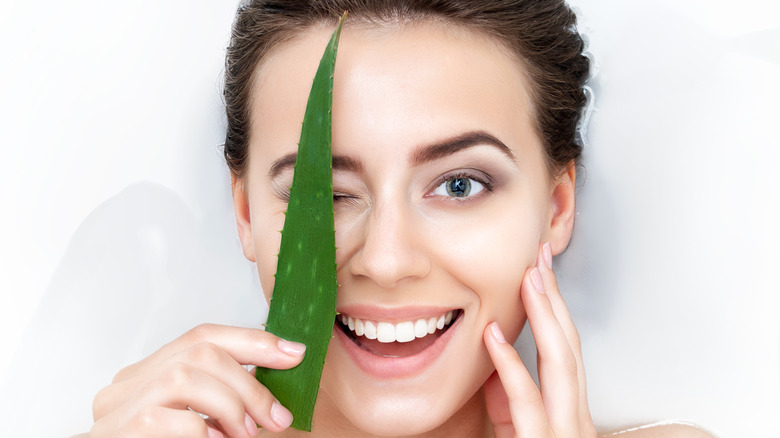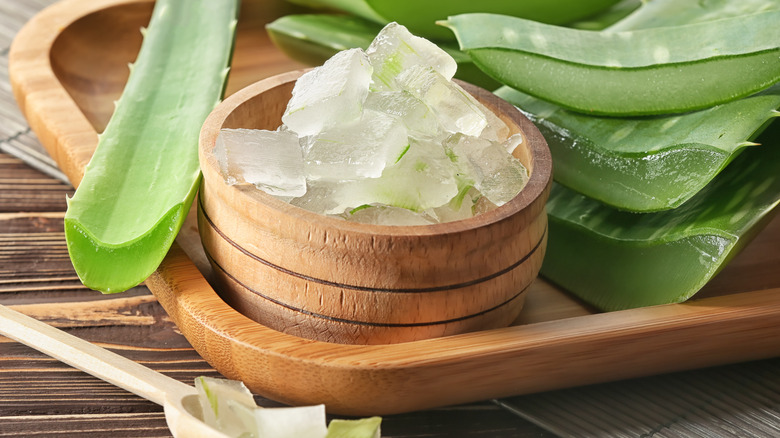What Is A Humectant And How Is Is Used In Skincare?
We may receive a commission on purchases made from links.
Keeping your skin moisturized to protect it from dehydration, irritation, and aging is essential. What you may not know is that all day and night creams you use to hydrate your skin can be divided into three categories: humectants, emollients, and occlusives. "Humectant ingredients absorb water so that it stays [locked] into the skin," Dr. Michelle Henry, M.D., told The Zoe Report. Another dermatologist, Dr. Joshua Zeichner, added that emollients soften the skin, while occlusives form a protective barrier on the outer layer of the skin.
According to WebMD, moisture loss is often the cause of dry skin and hair. Humectants bind with water to break down dead skin cells clogging your skin surface to hydrate and then soften your skin texture. They need to stay in the skin to work, so it's better to choose products that combine humectants with occlusives so they don't evaporate. Humectants draw in moisture, as they function as a sponge to attract water. Therefore, it's best not to apply them to dry skin. "Always apply humectants to damp skin," dermatologist Charles Puza told Byrdie. Humectants can carry moisture up to 100-1,000 times their own weight, after all, so damp skin is actually a plus here. Just remember that humectants can dehydrate deeper skin layers and make your skin dry if overused in non-humid weather.
The most common humectants are hyaluronic acid, glycerin, lactic acid, and aloe vera. In addition to hydrating, some humectants can even help exfoliate, soothe your skin, and plump your skin. Here's how to use them.
The easiest way to use humectants is as a serum
According to The Zoe Report, using a serum with humectants is the most popular method of getting dewy skin all year long, and New York City-based esthetician Sofie Pavitt recommends sandwiching it "in-between" your bare skin and an emollient product, so it has additional protection to prevent water loss. The Zoe Report's pick is Estée Lauder Advanced Night Repair Synchronized Multi-Recovery Complex Serum with hyaluronic acid to provide 72-hour hydration and to optimize the skin's natural repair process.
Who What Wear is a fan of L'Oréal Paris 1.5% Pure Hyaluronic Acid Serum, which is light, affordable, and extra hydrating. It's great for sensitive skin, as it is non-comedogenic, and it's free of fragrances and parabens. Just remember to apply it directly on damp skin after cleansing or spritzing if you want to reap its full benefits.
Byrdie loves the Glow Recipe Plum Plump Hyaluronic Acid Serum because it has different weights of hyaluronic acid to target various skin layers. It also has vegan collagen and silk proteins to protect against free radicals. Worth noting, too, is that you can use a humectant any time of the day. Just always remember: To get the best benefits of humectant, use it in tandem with occlusives and emollients.

